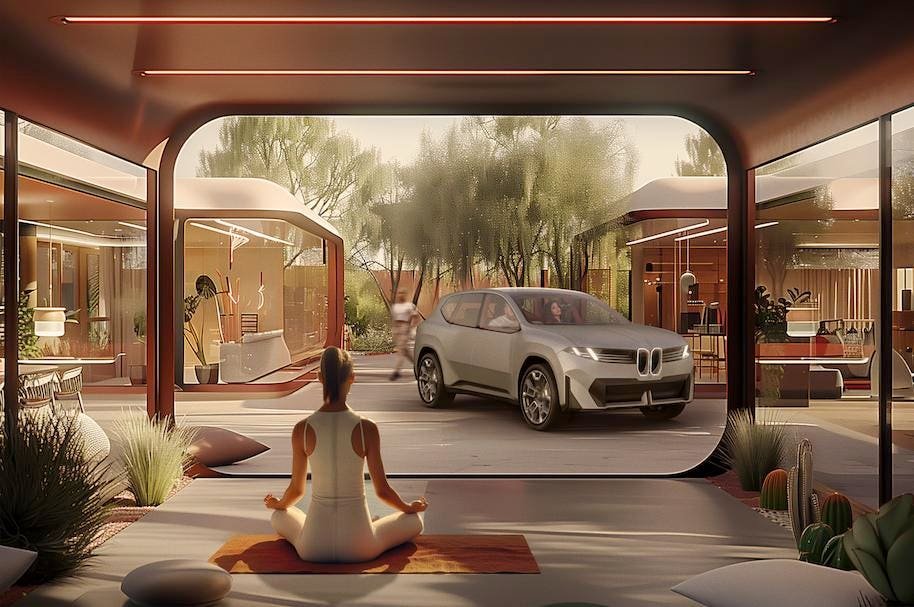Architectural firm Gensler and Designworks USA are envisioning a future where electric vehicles outnumber internal combustion engine vehicles, and gas stations are replaced by charging stations. With the effects of the Covid-19 pandemic leading to more people working remotely, there is a shift towards creating spaces that are more integrated into people’s lives rather than just serving as gas station replacements. These spaces, referred to as Nth spaces, are designed to cater to a variety of activities such as yoga, meditation, or work while waiting for the car to charge.
As the adoption of electric vehicles increases, there is a growing need for infrastructure that aligns with the changing needs of society. With EV sales showing signs of acceleration, reaching an 8% overall market share, there is a sense of inevitability that EVs will dominate the market at some point. Companies like Gensler and BMW Designworks are thinking ahead by considering how to make the chore of recharging align with the needs of everyday life, creating a more seamless and integrated experience for consumers.
In addition to catering to the lifestyle changes brought on by the transition to electric vehicles, Gensler and BMW Designworks are also considering the potential rise of autonomous vehicles. These vehicles present new scenarios and possibilities for interior design, with the focus shifting from driving controls to creating a shared space where occupants can interact. Cutting-edge technology such as eye tracking and gestures are being considered to enhance the overall experience of autonomous vehicles.
While the visions for these Nth spaces are currently in the conceptual stage, there are ongoing discussions with various partners to explore the possibility of bringing these ideas to life. Gensler and BMW Designworks are also collaborating with the City of Los Angeles to create innovative solutions for mobility hubs, such as a futuristic bus shelter. As society’s mobility needs evolve, these companies are working towards creating spaces that cater to these changing needs to the Nth degree, ensuring that the future of transportation is seamlessly integrated into everyday life.












